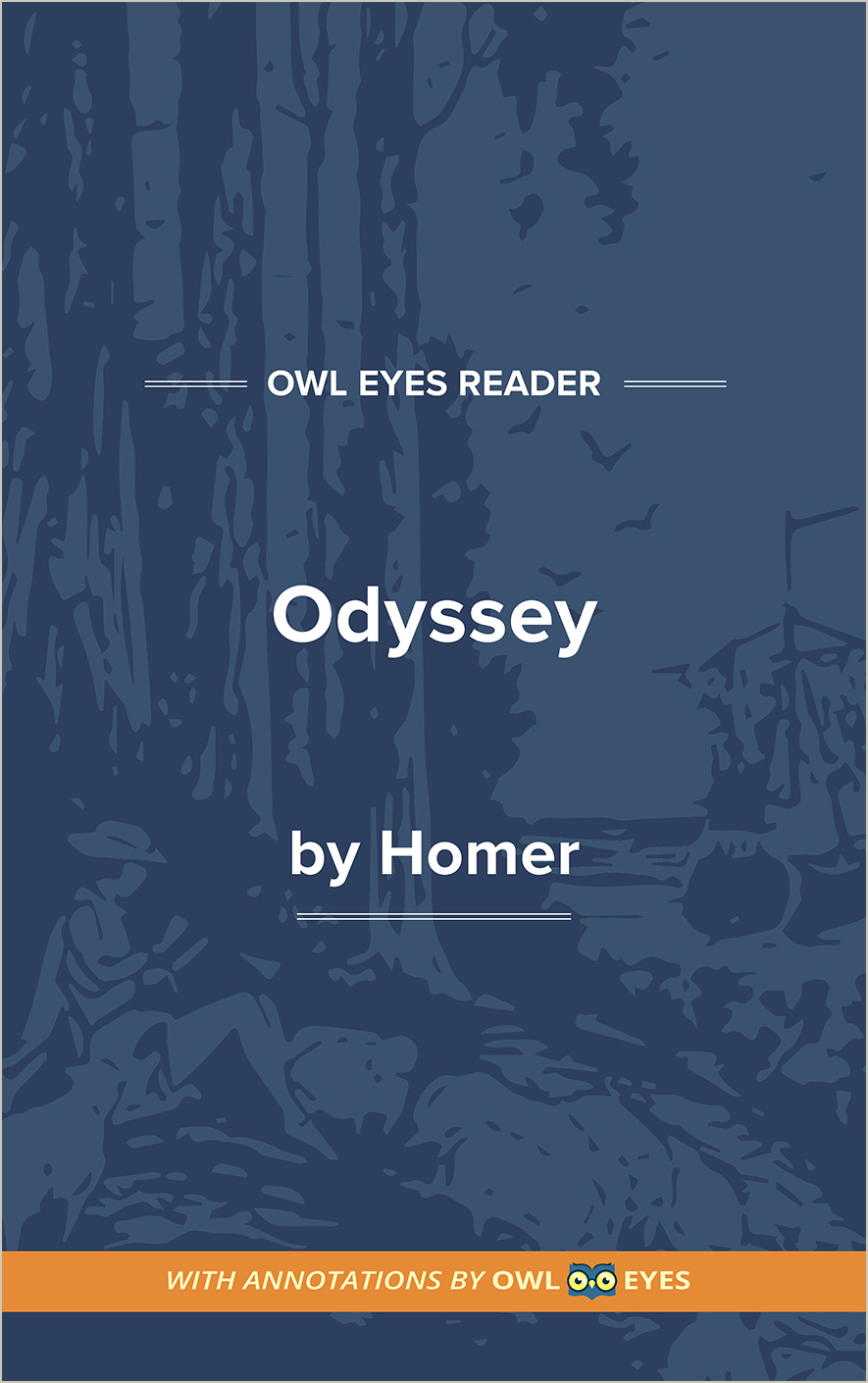Analysis Pages
Simile in The Odyssey
Simile Examples in The Odyssey:
Book I
🔒"she flew away like a bird..." See in text (Book I)
Book V
🔒"rising like a shield on the horizon..." See in text (Book V)
Book VI
🔒"He looked like some lion..." See in text (Book VI)
"As the huntress Artemis..." See in text (Book VI)
Book IX
🔒"a hole in a ship's plank..." See in text (Book IX)
Book X
🔒"as calves break out and gambol round their mothers..." See in text (Book X)
Book XI
🔒"as though it were a dream..." See in text (Book XI)
Book XVI
🔒"eagles or vultures with crooked talons..." See in text (Book XVI)
Book XIX
🔒"the husband who was all the time sitting by her side...." See in text (Book XIX)
"As the dun nightingale, daughter of Pandareus, sings in the early spring..." See in text (Book XIX)
Book XX
🔒"as a bitch with puppies growls..." See in text (Book XX)
Book XXI
🔒"like the twittering of a swallow..." See in text (Book XXI)
Book XXIII
🔒"As the sight of land is welcome..." See in text (Book XXIII)
"and looking just like a lion..." See in text (Book XXIII)

